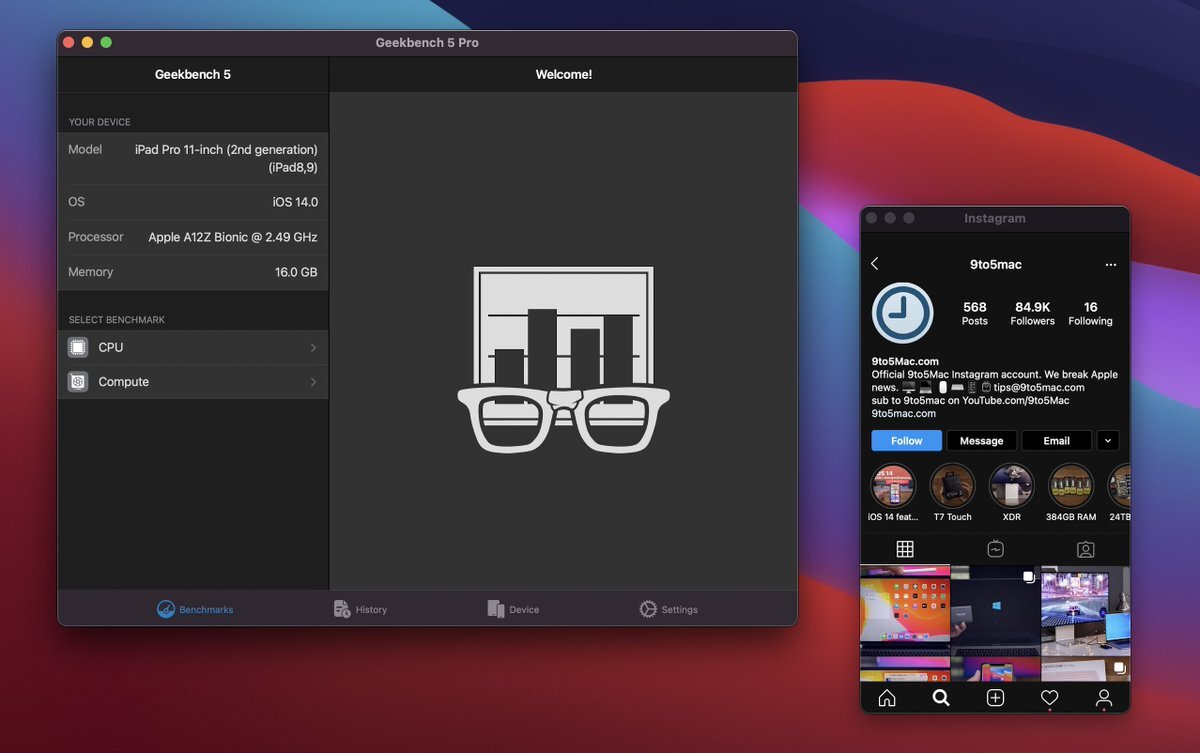
At WWDC last month, Apple officially detailed its plans for the transition from the Mac line to custom Apple Silicon processors. As part of that, Apple seeded a transition kit to developers, offering a Mac mini with the A12Z processor.
Today, new details have been leaked, offering a closer look at the performance of the Developer Transition Kit, as well as new details on how the iOS and iPadOS applications will look on the Mac.
Apple Developer Transition Kit Benchmarks
The first benchmarks emerged from the Developer Transition Kit Mac mini last month, but these benchmarks were made under virtualization, using Apple’s Rosetta technology. Running through Rosetta will affect performance, even though Apple claims it is much more capable than previous virtualization technology.
Today, new benchmarks have been leaked showing that the Developer Transition Kit runs Geekbench 5 Pro natively on the Mac mini, which means performance shouldn’t be affected by virtualization. Supposedly, this was done by initiating recovery, disabling security features, and signing application codes.
The results show a single core score of 1098 and a multiple core score of 4555. This compares to the non-native of 800 in the single core test and 2600 in the multiple core. For comparison, the basic $ 999 2020 MacBook Air achieves a Geekbench score of 1005 single-core and 2000 multi-core.
Again, what is important to remember here is that the Developer Transition Kit is designed exclusively for developers to port their applications. The hardware Apple ships to customers is sure to feature even more powerful processors, and we expect the first Apple Silicon Mac later this year.


IPhone and iPad applications on Mac
On Twitter, Steve Troughton-Smith also offered some details on how iOS and iPadOS apps will work on Apple Silicon Macs. Smith explains that there are a “series of compatibility behaviors applied to iOS applications that run without modification on macOS.”
Smith explains that these compatibility behaviors make iPhone and iPad apps “more likely to work” out of the box when a developer simply checks the Mac checkbox without making other optimizations. Smith writes:
There are a number of compatibility behaviors applied to iOS apps that run unmodified on macOS, making it much more likely to work immediately than if the developer had checked the Mac checkbox and nothing else. They are told that they are also running on an iPad running iOS 14.
With previously outdated frameworks like OpenGLES and classes like UIWebView now back in macOS, many applications should ‘just work’. These things were not relevant to the Catalyst SDK before, but are now relevant.
Smith uses Overcast and Procreate as two examples of iPad and iPhone apps running on Mac:


You can read more details in the full Steve Troughton-Smith thread here.
FTC: We use automatic affiliate links that generate income. Plus.

Check out 9to5Mac on YouTube for more Apple news: